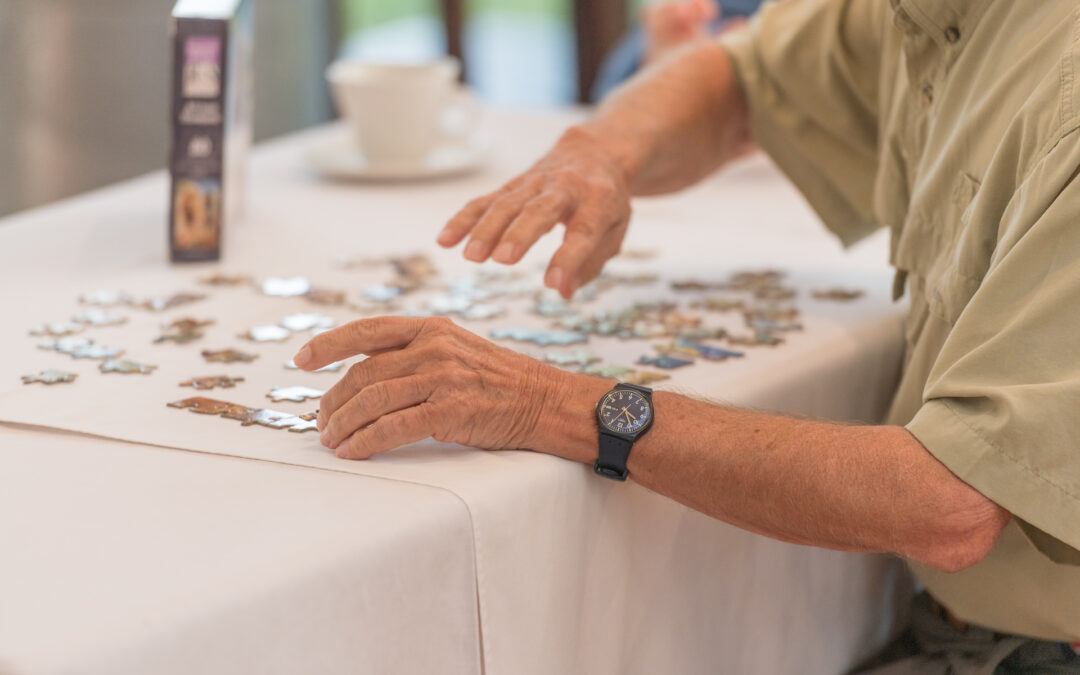Dementia is a disease that causes progressive damage to the structures of the brain. It is usually characterised by memory loss, because the damage starts with the structure of the brain called the hippocampus, which is the memory centre of the brain. Due to Dementia being progressive in nature the damage to the brain is not limited to the hippocampus, but spreads to the parts of the brain that govern physical movements, the personality, speech and hearing, and structures involved in processing sensory stimuli.
Memory loss is often a precursor to other cognitive, mental and physical challenges – for example, memory loss is often followed by disorientation, low self-confidence due to the realisation of the memory loss and functional decline, as well as inactivity and decreased physical endurance due to low confidence in their ability to complete daily tasks successfully, or simply forgetting to do daily tasks.
For this reason, the Activity Programme at Livewell places specific emphasis on cognitive and memory stimulation through engagement in activities that stimulate the other areas of the brain too. For example, due to a common phenomenon called sundowning that occurs in people who have dementia, activities which are more cognitively demanding are facilitated in the morning after an energising activity, with the more familiar and routinised activities facilitated in the afternoon. The Livewell Activity Programme starts with a gross motor energising activity followed by various cognitive and memory stimulation activities, which are often fine motor in nature. Examples of activities that are facilitated include gardening, baking, karaoke to old songs, board/card games, and arts and crafts. After lunch, the residents go on a gross motor sensory walk around the gardens, which is followed by carefully selected individual activities that are relevant and meaningful to each resident as an individual – these activities specifically include tasks that the residents were doing independently prior to their illness, to stimulate their memory as well as provide a sense of familiarity. These individualised tasks can range from packing away clean laundry to sketching, depending on the resident’s individuality.
In summary, we facilitate a healthy balance of gross motor and fine motor activities, which are all physically and cognitively stimulating in some way – each activity is selected to be individually meaningful and purposeful for our residents, has cognitive components (memory, planning, following instructions, critical thinking, problem-solving, judgement, etc.), and has a physical component (gross motor or fine motor) – in doing this, we ensure the emotional, social, physical, mental, and cognitive wellbeing of our residents.
By facilitating cognitively and physically stimulating activities that are individually meaningful and purposeful in a routinised daily activity programme, we ensure that the neural connections in the brain are constantly being stimulated to delay the progression of the disease, as well as to provide quality of life for our residents.
